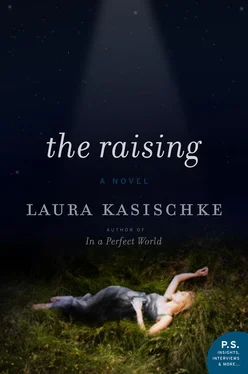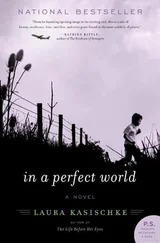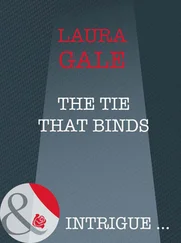An affair might have occurred to Mira, too, if she didn’t know exactly how Clark spent his days, and how impossible fitting anything extra into them would have been. The twins woke at 5:00 a.m., and did not stop having needs or making demands in their foreign language until 9:00 p.m. If she didn’t have class, Mira would get up with them in the morning and let Clark sleep. But when she did have class, which was most days, he’d be the one stumbling and swearing out of the bedroom and into the hallway. Mira would roll over and pretend to be asleep—even on the occasions when Clark seemed to take forever to wake up and roll out of bed—although her whole body would be screaming as she listened to the twins cry out. Their cries, always the same ( Braclaig ! Braclaig !), made it impossible to know whose attention they were demanding, but Mira felt certain they were calling for her. It made her feel as if an alarm clock were rattling inside her chest, sending vibrations through every nerve and into every nerve ending of her body.
There were so many nerve endings.
The year before, in the fall, she and Clark had gotten a babysitter and gone to the Body Worlds exhibit at the Natural History Museum in the city.
Dead bodies.
Her specialty.
It was why Clark had thought to buy the tickets. A birthday present. “Right up your alley,” he’d said, holding them up.
Except that these weren’t historical dead bodies. Folkloric dead bodies. These weren’t the kinds of primitive embalmings Mira studied. Instead, these were plastinated, dissected corpses, standing right in front of the viewer, filleted and splayed. A dead guy was set up on horseback, holding his own brain in one hand and his horse’s brain in the other. Another was lobbing a basketball into the air, all his muscles on display, stringy and red. There was a corpse reclining in front of a dark television set, and one kneeling in prayer, literally holding his heart in his hands. The worst, the one that haunted Mira for weeks afterward, was the pregnant woman lying on her side like a centerfold—nothing left but tissue and bone and a net of blood vessels, but still with her baby floating eerily in her womb.
Maybe it was because Mira was a cultural anthropologist and had never had the vaguest interest in biology or physiology, but standing in the moving line of gawkers at the Natural History Museum that day, all of them together shuffling past that woman and her child (both of whom looked unborn and undead at the same time), Mira had urgently wanted to know how that woman had died. The brochure they’d been handed when they turned in their tickets insisted that the people who’d donated their bodies for the exhibit had requested anonymity, had donated in the interest of science, and that to reveal the mundane details—age, race, nationality, dates, and circumstances of their deaths—was to muddy the waters, lessen the message of the exhibit, which was to show the human body in all of its glorious detail.
Bullshit, Mira thought. The only important thing here was who that woman was and what she had been doing on the day of her death. Had she known she would die? Had she lingered for weeks, or had she simply failed to look both ways as she crossed the street? Had she had her throat cut by a husband who suspected the baby she was carrying wasn’t his? Had she been stoned to death in some dark corner of the world for some supposed crime—maybe she’d flirted with a man of another religion, or sold some book to his wife that women weren’t allowed to read?
“They were executed,” Clark whispered into her ear as they stood in line waiting to view the dead Madonna, as if he’d gotten the news firsthand from someone who’d threatened to kill him, too, if he passed it on. “The men at least. You can tell. They’re all Asian. They’re shorter than Americans. Chinese prisoners.”
Clark hadn’t liked the exhibit either, but he said it was because he’d found it dull. It reminded him of high school health class, Mrs. Liebler. “I shouldn’t have wasted the money,” he’d said, but there was an edge of bitterness in it as if he’d expected Mira to love it even if he hadn’t. Instead, Mira had agreed—not that it was dull, but that they shouldn’t have wasted the money. God knows they did not, at the moment, have money to waste. And they so rarely hired a babysitter that Mira felt they should have used the free time to do something more important, like bathe, or sleep.
Still, she had learned something from looking at those corpses. She had learned that nerves were not the invisible, semi-imaginary forces inside the body she’d always thought they were.
No.
Nerves hung off the body in dangling cords, draping like willow switches. They looked damp and heavy. Humans were tangled in them like ropes and pulleys.
No wonder she felt as if every inch of her had been electrified as she lay there listening to the twins cry in the mornings, Clark taking his time shuffling out of the bedroom to meet their demands. She was, Mira realized, wrapped in a curtain of nerves! She was wearing a web of them. She was strung with them, like a Christmas tree in lights.
So, why didn’t she get up?
Because that was his job.
His only job.
She had an actual job.
Mira wasn’t, she thought, a feminist. Not exactly. If she had been, she wouldn’t have married a man like Clark—not with his lascivious admiration of women’s legs, and his belief in the supremacy of men in all things requiring logic or mechanical inclinations.
But she also felt it would be a terrible precedent to take over these tasks for him on the days she was teaching. It would take away the last thing he seemed to be contributing to the running of the household—attending to the children when she had to work.
Work in the world. For pay. An activity Clark, it seemed, had no plans to engage in again anytime soon.
And then she felt terrible for thinking this.
If Clark were a woman, a housewife, and Mira had heard some man say that the work of caring for two children wasn’t real , Mira would have been the first to stand up, waving a banner, shouting the chauvinist down. Of course it was a full-time job. A job she should have been grateful he was doing so that she could do hers.
So why, now, did she wish she were the one staying home with the screaming twins? Why, now, did she resent Clark for not having to get up in the morning, find his notes, pack his briefcase? She’d known exactly what his plans were when she’d married him, and bread-winning hadn’t been one of them. Mira had been the one who’d bristled when her father had asked if Clark planned, maybe someday, to go to law school, and proudly explained to her father that they both valued their “freedom to pursue intellectual endeavors” too much for either to take on such a mundane endeavor as law school.
Still, Mira had finished her doctorate, and Clark had dropped out of his master’s program in comparative philosophy, finding it to be another “mundane endeavor.” Now they were in their thirties, with two children, living in an apartment complex full of undergraduates, many of whom drove much nicer cars than the clunker she and Clark shared. Sometimes, Clark let his beard grow for days before shaving, and Mira occasionally wondered, from the smell of his breath, if he was taking sufficient care of his teeth. She knew he was bathing, because he would spend a long hour every night in the claw-foot tub with the door latched while she put the twins to bed. Once, she’d mentioned to him that their electric bill, $125, might be so high because of the hot water heater, and he’d turned to her with wide, desperate-looking eyes and said, “The fucking tub is the only thing I have to look forward to all day. ”
Читать дальше












